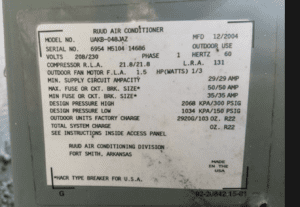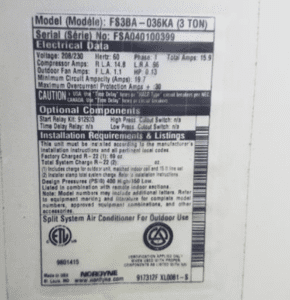
After decades of use in the residential and commercial refrigeration industry, scientists realized that the refrigerant commonly known as “Freon” was causing ozone layer damage. The ozone helps protect the surface of the Earth from UV rays. Because of the need to preserve the ozone, the EPA joined other international agencies to create the Montreal Protocol. This protocol worked in stages to phase out the use of Freon and by January 1st, 2020, the import and production of R-22 was no longer legal in the United States.
Today HVAC technicians that work with R-22 have to be certified by the EPA to do so, and have to dispose of R-22 correctly since it is considered hazardous waste. There are now only recycled supplies of R-22 left, meaning that it is now more costly to have the older equipment serviced.

It is not illegal to own equipment that contains R-22. If your equipment contains Freon, it does not mean that you need to replace it. However, you should consider the environmental impact of older equipment that is more at risk of a refrigerant leak. If Freon leaks out of the system, it will escape into the atmosphere. We strongly encourage annual servicing for all HVAC equipment but it is especially important for older equipment. The HVAC technician may be able to identify a small problem with the system and repair it before it becomes a larger problem that could result in a refrigerant leak.
Another reason to consider upgrading older equipment is to reduce energy bills. New AC units are significantly more efficient than equipment that was manufactured over a decade ago. You may see savings of 20 to 40 percent if you purchase a new, high-efficiency AC unit or heat pump.
